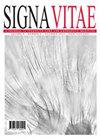Posttraumatic stress in Covid 19 patients after extubation in an intensive care unit (ICU)
IF 0.6
4区 医学
Q3 EMERGENCY MEDICINE
引用次数: 0
Abstract
If you’re patient in an ICU, this fact is in itself a traumatic unpleasant event. Covid 19 patients who admitted to the intensive care unit urgently, are provided with a wide range of machines for safe monitoring. Objective-purpose: The purpose is to record the physical and emotional unpleasant experience during their hospitalisation in ICU. Material-methods: We conducted a study of 18 patients, (44 to 82 years old), ASA II-III, 12 men and 6 women. We filled out a questionnaire. 1. What was the difficulty in communication? 2. What was scary in the environment (ICU)? 3. Do you suffer from insomnia? (noises from ventilators or monitors). 4. Do you feel pain ?(VAS scale) 5. Do you feel muscle weakness? 6. Do you know where are you ?(disorientation) 7. Do you want to talk to your family? 8. Emotional changes (anger, aggression, arousal.) 9. Can you swallow?Results: (8) Covid 19 patients difficulty in communication. (14) Covid 19 patients were scary. (12) Covid 19 patients suffered from insomnia. (16) Covid 19 patients felt pain VAS >8. (18) Covid 19 patients felt weakness. (11) Covid 19 patients with disorientation. (6) Covid 19 patients with emotional changes (anger, aggression, arousal). (12) Covid 19 patients: difficulty swallowing. Symptoms such as muscle weakness or insomnia persist 6 months after discharge from the hospital.Conclusions: Memories of posttraumatic stress in Covid 19 patients in an ICU appear to be different, unprecedented and particularly stressful. These patients need a long term psychological support ie desensitisation. A plan is required : I start from the beginning to live.新冠肺炎19名患者在重症监护室拔管后的创伤后应激
如果你是重症监护室的病人,这个事实本身就是一个创伤性的不愉快事件。新冠肺炎19名患者被紧急送入重症监护室,他们配备了多种机器进行安全监测。目的:记录他们在ICU住院期间的身体和情绪上的不愉快经历。材料方法:我们对18名ASA II-III患者(44至82岁)、12名男性和6名女性进行了研究。我们填写了一份调查问卷。1.沟通的困难是什么?2.重症监护室(ICU)里有什么可怕的地方?3.你失眠吗?(呼吸机或监视器发出的噪音)。你感到疼痛吗?(VAS评分)5。你觉得肌肉无力吗?6.你知道你在哪里吗?(迷失方向)7.你想和你的家人谈谈吗?8.情绪变化(愤怒、攻击、觉醒)9。你能吞咽吗?结果:(8)新冠肺炎19例患者沟通困难。(14) 新冠肺炎19名患者非常可怕。(12) 新冠肺炎19名患者失眠。(16) 新冠肺炎19名患者感到疼痛VAS>8。(18) 新冠肺炎19名患者感到虚弱。(11) 新冠肺炎19例定向障碍患者。(6) 新冠肺炎19名患者出现情绪变化(愤怒、攻击、唤起)。(12) 新冠肺炎19名患者:吞咽困难。肌肉无力或失眠等症状在出院后6个月持续存在。结论:ICU中新冠肺炎19名患者对创伤后压力的记忆似乎不同,前所未有,压力特别大。这些病人需要长期的心理支持(脱敏)。需要一个计划:我从头开始生活。
本文章由计算机程序翻译,如有差异,请以英文原文为准。
求助全文
约1分钟内获得全文
求助全文
来源期刊

Signa Vitae
医学-急救医学
CiteScore
1.30
自引率
9.10%
发文量
0
审稿时长
3 months
期刊介绍:
Signa Vitae is a completely open-access,peer-reviewed journal dedicate to deliver the leading edge research in anaesthesia, intensive care and emergency medicine to publics. The journal’s intention is to be practice-oriented, so we focus on the clinical practice and fundamental understanding of adult, pediatric and neonatal intensive care, as well as anesthesia and emergency medicine.
Although Signa Vitae is primarily a clinical journal, we welcome submissions of basic science papers if the authors can demonstrate their clinical relevance. The Signa Vitae journal encourages scientists and academicians all around the world to share their original writings in the form of original research, review, mini-review, systematic review, short communication, case report, letter to the editor, commentary, rapid report, news and views, as well as meeting report. Full texts of all published articles, can be downloaded for free from our web site.
 求助内容:
求助内容: 应助结果提醒方式:
应助结果提醒方式:


